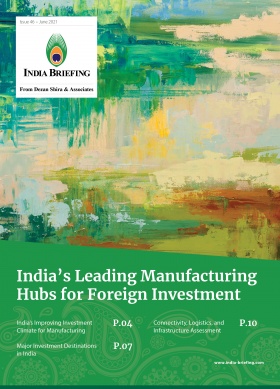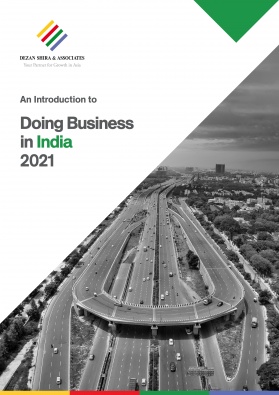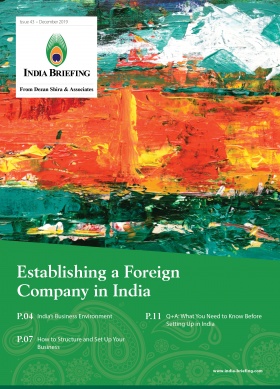Traveling and Doing Business in Bangladesh: Culture and Etiquette
In this article, we provide a brief explainer on business etiquette in Bangladesh and tips for business interactions in the country. Prior to that, we highlight key features of Bangladesh, including its location, climate, landscape, and cultural and social traits.
The article is part of our ongoing coverage of Bangladesh’s economy, business, and trade environment, which is gaining prominence on the radar of many Asia-focused investors. Previous articles have discussed the country’s supply chain advantage, explained the legal entity options for foreign investors, addressed the basics of opening a bank account here, and detailed the intellectual property protections available.
Location and population
Bangladesh is a small country of approximately 148,000 square km located in South Asia. Its neighbors include India to the west, north, and northeast and Myanmar in the southeast, and it is surrounded by the Bay of Bengal and Indian Ocean in the south.
Despite its size, Bangladesh is home to 164 million people, making it one of the most densely populated countries in the world.
Climate and geography
The climate is tropical, so it is hot and humid for most of the year, with a monsoon season from June to October, and a mild winter which see temperatures get slightly lower. During the monsoon season, it rains almost every day. The soil is incredibly rich and fertile due to the country essentially being a large river delta.
Fifty-seven rivers, formed by the snowmelt of the Himalayan mountain range to the north, carry sediment full of minerals throughout the land on their way down to the Bay of Bengal. People rely heavily on these rivers for food, agriculture, and transportation, so naturally, they play a role in Bangladesh’s arts, culture, and cuisine too.
Economy
Bangladesh is a Less Economically Developed Country, so poverty is ubiquitous. In 2016, the percentage of the population living on less than US $5.50 (2011 PPP) per day was about 84 percent, according to the World Bank. T
Nevertheless, the country has been on a steady path to progress. It has a competitive investment climate, relatively large and young labor market, and is ambitious to grow its agribusiness, garment and textiles, energy, IT, and infrastructure sectors – for which it is heavily courting foreign investors and setting up special economic zones.
The country’s consumer economy also offers rising prospects, and Bangladesh’s GDP per capital income registered a nine percent growth in 2020.
Culture
The country has a rich cultural heritage, both in the past as part of the Bengal region and after its independence in 1971. While the country was founded on a secular constitution, the Islamic faith has a strong influence on public life due to its predominance – 90 percent of the Bangladeshi population identifies as Muslim. The remaining population practices Hinduism, Buddhism, or Christianity.
The population is relatively homogenous – with about 98 percent being ethnically Bengali.
Social traits
Using indicators based on Geert Hofstede’s popular model for understanding cultural differences, we can acknowledge the following aspects of Bangladesh society and cultural norms:
- Hierarchy in the workplace: Bangladesh has a high degree of inequality and individuals in society generally accept their place. As such, within organizations, subordinates expect to be told what to do by their superiors and superiors expect to be acknowledged and kept informed by their subordinates. When doing business, it may be necessary to communicate directly with the leaders of an organization to resolve issues. When interacting with these leaders, it is important to remain tactful and respectful, and refrain from openly and explicitly challenging them. Disagreements should be handled privately. This ties into “the concept of face”.
- Work culture and avoidance of ambiguity in social relations and outcomes: Issues are more likely to be resolved through assertiveness and the exertion of one’s influence, rather than through compromise and cooperation, and there is more likely to be a culture of working long hours. People are resistant towards change and risky behavior but are still amenable enough. There are many rigid social conventions to observe, and Bangladeshi society is generally conservative. Additionally, it is common practice to verbally express emotions, including negative ones like anger, because people want to maintain control of situations.
- Collectivist society: Bangladesh is a decidedly collectivist society. Here, individuals are seen as being responsible for members of their larger groups, including extended family members and relatives, friends, and even employees. Loyalty to people trumps loyalty to rules, ideas, and institutions. Bangladeshis usually reside in multigenerational households with extended family members. Additionally, given the ubiquity of poverty, members of the middle class and above often have live-in domestic workers. This kind of living arrangement both stems from and reinforces the feeling of belonging to a larger group for which one is responsible.
- Culture of restraint: Bangladesh has a culture of restraint. Here, people tend to prepare for rainy days, and thus, tend to be more rigid and restrained in their behavior. The atmosphere in meetings tends to be more serious, and jokes and heated discussions are typically saved for more informal settings.
Business etiquette and tips
Greetings
Bengali, known as “Bangla,” to natives, is the official state language and spoken by more than 98 percent of the population. However, due to the popularity of Western and Indian media, many Bangladeshis can also speak English and Hindi.
In business settings, most Bangladeshis can speak English. Interactions are generally initiated with “Hello”, “How are you?”, or “Salam”. If you are up for a challenge, the typical Bengali greeting is “As-salamu alaykum”, which means “may peace be upon you” in Arabic, to which one responds “Wa alaykumu s-salam”, which means “may peace be upon you as well”.
Touch, in the form of a soft handshake, is more common among members of the same gender, while a polite nod is generally exchanged between members of the opposite gender. Because of the COVID-19 pandemic, a polite nod followed by placing one’s hand over their heart may be the most appropriate non-verbal greeting regardless of gender. The right hand should be used to give and receive business cards.
Business attire
Business attire in Bangladesh is generally conservative. Business formal includes business suits in dark colours for both genders. Business casual for men includes a button-down shirt with slacks or khaki pants, and for women includes the traditional salwar kameez, or a blouse with a skirt or dress pants. Jeans are just beginning to enter the realm of “business casual”, so it is best to avoid wearing them in business settings.
Offices where people leave their outside shoes at the door are not uncommon – this is generally an Asian practice and usually stems from a collective preference at the office, rather than an imposed requirement for entry.
Business interactions
Business meetings should be scheduled in advance to avoid scheduling conflicts. The weekend in Bangladesh is on Friday and Saturday, so responses to emails should be expected accordingly. A translator could be helpful to have in business meetings to ease language barriers and ensure that all details of the conversation are fully understood by both parties.
Expect a lot of small talk in the first meeting. Establishing familiarity and trust is important to Bangladeshis and can be attributed to the culture’s long-term orientation and high uncertainty avoidance. As such, it is possible for the entire first meeting to consist of introductions and for important decisions to be made in subsequent meetings.
When establishing familiarity in a business context, Bangladeshis may ask questions that may seem personal to someone from a more individualistic culture, such as questions about one’s family. However, inquiring about one’s personal life is commonplace and intended as an expression of friendliness and interest in Bangladesh’s collectivist culture.
As previously discussed, seniority and hierarchy are important in Bangladesh. As such, the most senior-ranking official typically leads the meeting and makes the decisions.
Additionally, the concept of face is important to be mindful of in business meetings. “Face” in this context loosely means “a person’s reputation, dignity, and prestige”. Where in many cultures frank and direct communication is encouraged, overt disagreement or criticism in group settings or large forums can be seen as causing a “loss of face” in Bangladesh. Thus, it is important to be as tactful and gentle as possible, particularly if one comes from a culture where frankness is encouraged. If you have constructive criticism to offer, it is best to discuss this in private.
Bangladeshis are implicit/indirect communicators, meaning they tend to communicate in long sentences that sometimes only make sense when context and body language are accounted for. As such, it is important to carefully observe the context in which your Bangladeshi counterpart is speaking and be aware of visual cues, pauses, body language, and what is not said, in addition to what is. For example, saying “yes” may merely indicate understanding, rather than actual agreement, so it is best to clarify with your Bangladeshi counterpart whether you have reached an agreement on a deal.
Eating and drinking
If invited to a Bangladeshi home, you are encouraged to bring fruits, pastries, sweets, good quality chocolates, or souvenirs as gifts. Always remember to ask about allergies and dietary restrictions when giving foods as gifts. Avoid giving money, white flowers, animal products and by-products, or alcoholic beverages as gifts. Present and receive gifts either with both hands or just the right hand.
Wait for the host to give the signal to start the meal before sampling any of the food. It is considered good manners to finish all the food on your plate. Most people eat with their hands, so ensure you wash your hands before the meal. If you are uncomfortable eating with your hands, it is perfectly acceptable to ask for utensils. If you choose to eat with your hands, only eat with the right hand – never the left.
It is customary for Bangladeshis to repeatedly insist that their guests have additional servings. We advise you to pace yourself when eating, so that you can accept at least one such offer, which is viewed as being polite. To politely decline further servings, simply say “no, thank you – I am full” every time.
After the meal, it is normal to sit for some time and make conversation. Dessert is usually served, as Bangladesh is well known for its traditional sweets and tropical fruits. Alcohol is typically absent due to the prevalence of Islam, which prohibits its consumption.
Public spaces
Unlike many cultures, there is no social taboo against staring in Bangladesh. As such, often the first thing one notices in public, particularly if one is a foreigner or wearing nice clothes, is that they are being stared at by passers-by.
Bangladeshis often stand close to others in public, even in the case of strangers. If you are uncomfortable with this, particularly due to the COVID-19 pandemic, you should politely ask if the person could please stand a bit further away.
Due to religious conservatism, public displays of affection, particularly between romantic partners, are taboo and may attract negative attention.
Safety
We recommend exercising caution and remaining vigilant when traveling to Bangladesh. Always consult your state department’s country information page and guidelines when planning your trip.
Additionally, it is unwise to wander completely alone. If you are relatively new to Bangladesh, we recommend having a trusted advisor, translator, or local contact, who is familiar with the country, and traveling in groups for tourism purposes. Valuables should be stored in hotel safes, and mobile phones and wallets should be kept out of sight to minimize the risk of pick-pocketing, particularly in crowded areas.
We do not recommend consuming food from street vendors, as these food items are totally unregulated. Tap water cannot be readily consumed – it must be filtered or boiled first. Mosquito repellent may be required, particularly from June to October, due to the prevalence of the severe mosquito-borne illness known as dengue fever during this time. Additionally, we recommend avoiding stray dogs, of which there are many, particularly in urban areas, due to rabies.
About Us
India Briefing is produced by Dezan Shira & Associates. The firm assists foreign investors throughout Asia from offices across the world, including in Delhi and Mumbai. Readers may write to india@dezshira.com for more support on doing business in in India.
We also maintain offices or have alliance partners assisting foreign investors in Indonesia, Singapore, Vietnam, Philippines, Malaysia, Thailand, Italy, Germany, and the United States, in addition to practices in Bangladesh and Russia.
- Previous Article Major Investment Destinations in India
- Next Article Due Process for Terminating an Employee in India








